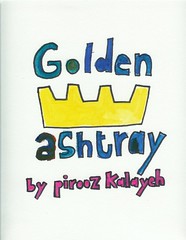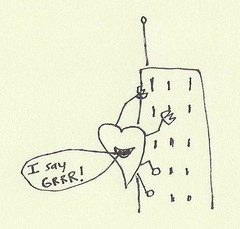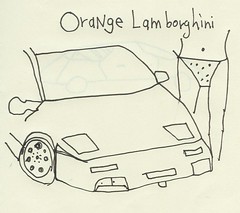Eric Shonkwiler has described Tao Lin, Noah Cicero, and Zachary German as "morphic field crap" that he is "tired of [] already".
In response, Tao Lin remarked that "[artists] feel bad when you talk shit about something they've created, something they created with no purpose..."
Noah Cicero supported Lin's claims by further exemplifying how critques of independent authors are counter intuitive, since their purpose is to share on a small scale, unlike, as Cicero states, "[an author] who 'gets an agent, editor, has a giant publisher and is seeking a movie deal.' "
Cicero also distinguishes the difference between Bear Parade authors mimicing today's American vernacular - and the brevity in sentence length used by Ernest Hemingway, Ezra Pound, and Gertrude Stein - as a byproduct of the environmental and cultural differences of expatriots living in France examining their speech patterns in contrast to contemporary American authors fictionalizing a country "preoccupied with video games, cell phones, having nice skin, fast food, getting a good nights rest, and having the ability to get boners..."
Although Shonkwiler's critique has received a backlash from some of the authors and their fans, the underlying question still remains: Is the future of writing going to be fiction that relates to an audience, or is it going to be something that is personal, and possibly outside a reader's environmental or cultural understanding?
Cicero posits that an alignment with style and content is based on one's predilections, and is not an aspect of writing that can be controlled by an author.
"If you don't like or can't relate to the content and style, then you probably won't like the story, " Cicero explains on his blog, The Outsider.
Brad Warner, the author of Hardcore Zen, has posited that artists are faced with three possible outcomes: 1) they will create according to their predelections and a) be met with instant success, b) only appeal to a small group; or 3) an individual will write for a particular audience and a) be met with instant success, or b) not.
According to Warner's article "Sing in the Voice God Gave You":
"..Pleasing other people only really matters if you want to be financially successful, or if you’re just the type who gets off on pleasing other people. Some rare artists are lucky in being able to produce art they really personally like that just happens to be what lots of folks want to hear or see. Some artists are just people pleasing types and what moves them is making things that others like. These two types can get popular without really compromising. Then there are those who just want money and popularity and will make whatever’s selling well. Most of these types fail miserably. But a few make it very big. Generally, though, I think most artists produce art that’s never gonna appeal to a wide audience..."
Regardless of the eventual outcome, Warner believes that an individual meeting personal tastes will be happier in comparison to those who are trying to appeal to an audience solely for the purpose of fame or money.
If we are to take Warner's position as valid, then the question of author control is a moot one. Audiences will naturally gravitate towards fictional worlds that are synonymous with their tastes and experiential frameworks. The future of writing is therefore an unknown to be discussed with any plausibility. As such, authors may be better off eliminating prophecies in favor of creation itself.
Subscribe to:
Post Comments (Atom)












2 comments:
this is funny
i think you are smart and funny
very professional
Post a Comment